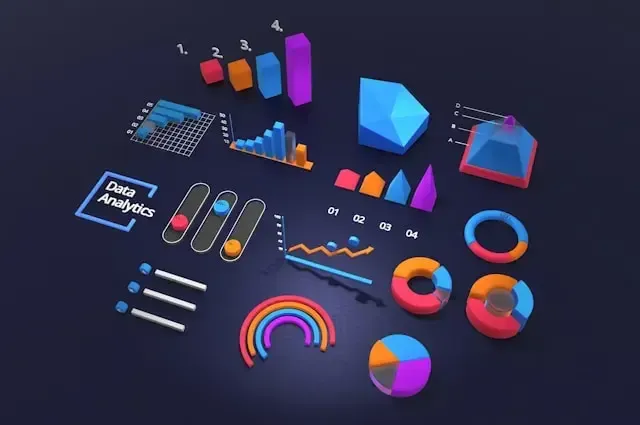In this article, we will explore the benefits of growing your own food, how to start your garden, and tips for maintaining it.
Growing your fruits, vegetables, and herbs is a rewarding and enjoyable activity. Whether you have a large backyard or just a small balcony, you can create an edible garden that provides fresh, healthy food for you and your family. In this article, we will explore the benefits of growing your food, how to start your garden, and tips for maintaining it.
Why Grow Your Food?
Growing your food has many benefits. First, it is a great way to ensure that the produce you eat is fresh and free of chemicals. When you grow your own fruits and vegetables, you know exactly what has been used to grow them. This means no harmful pesticides or chemicals. Fresh produce from your garden is also tastier and more nutritious than store-bought produce.
Another benefit of growing your food is that it can save you money. Seeds and small plants are much cheaper than buying fruits and vegetables from the store. Plus, once your plants start producing, you will have a continuous supply of fresh produce. This can reduce your grocery bill significantly.
Growing your food is also good for the environment. It reduces the need for transportation, which means fewer carbon emissions. Plus, plants help improve air quality by absorbing carbon dioxide and releasing oxygen. By growing your food, you are contributing to a healthier planet.
Getting Started with Your Edible Garden
Starting an edible garden might seem overwhelming, but it is quite simple. The first step is to decide what you want to grow. Think about the fruits, vegetables, and herbs that you and your family enjoy eating. Some easy-to-grow options include tomatoes, cucumbers, lettuce, basil, and strawberries.
Next, you need to choose the right location for your garden. Most fruits and vegetables need at least six hours of sunlight each day. Look for a spot in your yard or on your balcony that gets plenty of sun. If you don’t have a lot of space, don’t worry. You can use containers or even grow plants vertically.
After you have chosen your location, it is time to prepare the soil. Good soil is key to a successful garden. If you are planting in the ground, loosen the soil and add compost or organic matter to improve its quality. If you are using containers, choose a good-quality potting mix.
Once your soil is ready, you can start planting. Follow the instructions on the seed packets or plant labels for the best results. Water your plants regularly, but be careful not to overwater them. Too much water can cause the roots to rot.
Choosing the Right Fruits, Vegetables, and Herbs
When choosing what to grow in your edible garden, consider your climate and the space you have available. Some plants do better in certain climates, so it is important to choose plants that will thrive in your area.
For example, if you live in a warm climate, you might want to grow tomatoes, peppers, and melons. These plants love the heat and will produce plenty of fruit. If you live in a cooler climate, consider growing lettuce, spinach, and peas. These plants do well in cooler temperatures and can be planted early in the spring.
Herbs are a great addition to any garden because they are easy to grow and don’t take up much space. Some popular herbs to grow include basil, mint, rosemary, and thyme. Herbs can be grown in containers, so they are perfect for small spaces.
Fruits can be a bit more challenging to grow, but they are worth the effort. Strawberries, blueberries, and raspberries are great options for beginners. These plants can be grown in containers or directly in the ground.
Maintaining Your Edible Garden
Maintaining your garden is important to ensure that your plants stay healthy and productive. One of the most important tasks is watering. Most plants need about an inch of water per week. Water your plants early in the morning or late in the evening to reduce evaporation.
Weeding is another important task. Weeds compete with your plants for nutrients and water, so it is important to remove them regularly. Mulching can help reduce weeds and keep the soil moist. Spread a layer of mulch around your plants to help retain moisture and prevent weeds from growing.
Fertilizing your plants can also help them grow better. Use an organic fertilizer to provide your plants with the nutrients they need. Follow the instructions on the fertilizer package for the best results.
Harvesting Your Fruits, Vegetables, and Herbs
Harvesting your produce is one of the most rewarding parts of gardening. The key is to harvest at the right time. Fruits and vegetables taste best when they are harvested at their peak ripeness.
For example, tomatoes should be picked when they are fully colored and slightly soft to the touch. Cucumbers are best when they are firm and dark green. Lettuce can be harvested when the leaves are big enough to eat, but before they start to flower.
Herbs can be harvested as soon as they have enough leaves to spare. Pinch off the leaves or stems as needed, but don’t remove more than one-third of the plant at a time. This allows the plant to continue growing.
Common Problems and Solutions
Even with the best care, you might encounter some problems in your garden. Pests and diseases can affect your plants, but there are ways to deal with them naturally.
One common pest is the aphid. These small insects can damage your plants by sucking the sap from the leaves. You can control aphids by spraying your plants with a mixture of water and dish soap. Ladybugs are also great natural predators of aphids.
Another common problem is powdery mildew, a fungal disease that affects many plants. It looks like a white powder on the leaves and can be controlled by spraying your plants with a mixture of water and baking soda.
If you notice yellowing leaves or stunted growth, your plants might be lacking nutrients. Adding compost or an organic fertilizer can help improve the soil and provide your plants with the nutrients they need.
Benefits of Growing Your Food
There are many benefits to growing your food. Not only do you get fresh, healthy produce, but you also get to spend time outdoors and enjoy the satisfaction of growing something yourself. Gardening can be a great way to relax and reduce stress. Plus, it is a fun activity that the whole family can enjoy.
Growing your food also teaches children about where their food comes from and the importance of healthy eating. It can help them develop a love for fruits and vegetables and encourage them to try new foods.
Tips for Success for Growing Your Fruits, Vegetables, and Herbs
Growing your fruits, vegetables, and herbs is a fun and rewarding experience. It doesn’t matter if you have a big backyard or just a small balcony; you can grow your own food and enjoy fresh, healthy produce right at home. Here are some simple tips to help you succeed in your gardening adventure.
- Start Small
If you’re new to gardening, it’s best to start small. Choose just a few types of fruits, vegetables, or herbs to grow. This way, you won’t feel overwhelmed. You can always add more plants as you get more comfortable with gardening.
- Choose Easy Plants
Some plants are easier to grow than others. For beginners, try growing tomatoes, lettuce, basil, or strawberries. These plants are not too fussy and can give you a good harvest. As you gain experience, you can try growing more challenging plants.
- Find the Right Spot
Most fruits, vegetables, and herbs need plenty of sunlight to grow well. Look for a spot in your yard or on your balcony that gets at least 6 hours of sunlight each day. If you don’t have a sunny spot, you can still grow some plants that do well in partial shade, like spinach or mint.
- Use Good Soil
Good soil is key to a healthy garden. If you’re planting in the ground, make sure the soil is loose and rich in nutrients. You can add compost or organic matter to improve the soil. If you’re using containers, choose a high-quality potting mix. Good soil will help your plants grow strong and healthy.
- Water Regularly
Plants need water to grow, but it’s important not to overwater them. Check the soil before watering. If the top inch of soil is dry, it’s time to water. Water your plants early in the morning or in the evening to reduce evaporation. Make sure the water reaches the roots of the plants.
- Fertilize Your Plants
Plants need nutrients to grow. You can help them by adding fertilizer. Use an organic fertilizer and follow the instructions on the package. Don’t over-fertilize, as this can harm your plants. Adding compost to the soil can also provide your plants with the nutrients they need.
- Weed Regularly
Weeds can compete with your plants for nutrients and water. It’s important to remove them regularly. You can pull weeds by hand or use a hoe to remove them. Adding mulch around your plants can help prevent weeds from growing and keep the soil moist.
- Support Your Plants
Some plants, like tomatoes and cucumbers, need support as they grow. You can use stakes, cages, or trellises to keep them upright. Supporting your plants helps them grow better and makes it easier to harvest fruits and vegetables.
- Watch for Pests
Pests can be a problem in any garden. Keep an eye out for insects or other pests that might harm your plants. You can use natural pest control methods, like spraying plants with a mixture of water and dish soap or introducing beneficial insects like ladybugs to your garden.
- Harvest at the Right Time
Harvesting your fruits, vegetables, and herbs at the right time is important. Fruits and vegetables taste best when they are fully ripe. Herbs can be harvested as soon as they have enough leaves to spare. Check your plants regularly and enjoy the fresh produce when it’s ready.
- Have Fun
Gardening should be enjoyable. Don’t worry too much about making everything perfect. Enjoy the process of planting, growing, and harvesting your own food. It’s a great way to spend time outdoors and connect with nature.
Conclusion
Growing your fruits, vegetables, and herbs is a rewarding and enjoyable activity. With a little planning and care, you can create an edible garden that provides fresh, healthy food for you and your family. Whether you have a large backyard or just a small balcony, there are plenty of ways to make your garden thrive. So, get started today and enjoy the many benefits of growing your food!


























